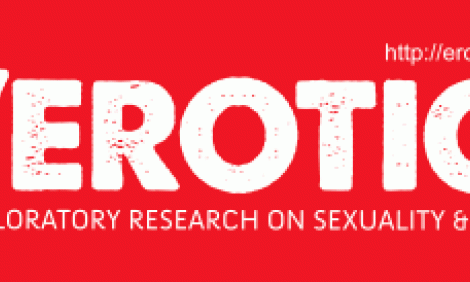Publication
Access and participation of women and girls in education, training and science and technology, including for the promotion - Draft agreed conclusions
The outcome of the Commission’s consideration of the priority theme takes the form of agreed conclusions, negotiated by all States. These identify gaps and challenges in the implementation of previous commitments. They also provide action-oriented recommendations for all States, relevant non-governmental bodies, mechanisms and entities of the UN System and other relevant stakeholders, in order to…
Feminist talk
Take Back the Tech at the 55th Commission on the Status of Women
Jac sm Kee reports back from the funkiest session at the 55th meeting of the Commission on the Status of Women - the 'Take Back the Tech!: Reclaiming Technology for Women's Rights' panel debate.
Publication
Take Back The Tech! Questions & answers session (video, 33mins)
Jan Moolman facilitates the Questions & Answers session at the "Take Back The Tech! Reclaiming technology for women's rights" event at the 55th Commission on the Status of Women, on 25 February 2011.
Publication
Transforming landscape of women's communication rights (video, 18mins)
Jac sm Kee talks about the Take Back The Tech! campaign, as well as introduces the Erotics - Exploratory Research on Sexuality and the Internet - project. Jac presents examples from Brazil, Lebanon, India and South Africa illustrating how the queer movement is using the internet for mobilising and for the exercise of sexual rights. She also explains how the Take Back The Tech! campaign connects…

Publication
EROTICS: Exploratory research on sexuality and the internet - summary report
What is the value of the internet in the exercise of sexual rights? From 2008 to 2010, the EROTICS research sought to answer this question, aiming to bridge the gap between policy and legislative measures that regulate content and practice on the internet, and the actual lived practices, experiences and concerns of internet users in the exercise of their sexual rights. The summary report provides…
In depth
EroTICs: Sexuality and technology
Sonia Randhawa and Jac sm Kee explore the links between sexuality and the theme of this year’s Commission on the Status of Women meeting, “Access and participation of women and girls in education, training, science and technology, including for the promotion of women’s equal access to full employment and decent work”.
Feminist talk
Challenging pornophobia and moral beliefs of Congolese media practitioners
Francoise Mukuku reports on the online discussion around ICT and violence against women organized by Genderlinks as part of the 16 Days of Activism: "As my organization Si Jeunesse Savait is implementing a 2-year project on the topic, I felt like it was really the place to be today...But let me tell you that the debate between most of the people I met online today was really far from meeting my…
In depth
Sexual rights, openness and regulatory systems
The summary of the 'Sexual rights, openness and regulatory systems' workshop co-organized by APC WNSP, Centre for Internet and Society and Alternative Law Forum at the Internet Governance Forum(IGF) in Vilnius, Lithuania on September 14 2010. T.Q. from the Lebanon EroTICs team speaks about the history of the local queer movement which correlates with the development of the internet in Lebanon.…
Publication
APC Brief on the Fifth Internet Governance Forum
The Internet Governance Forum is a platform for multi-stakeholder policy dialogue on internet governance, that emerged from the second phase of the World Summit on the Information Society (WSIS). In this document, APC presents in brief some of the most pressing issues to be debated in the IGF's fifth year of existence.
Feminist talk
Lebanon: Queering the internet
Lebanon EroTICs team report-back to the local Meem group (www.meemgroup.org) about the IGF. She reflects on strategy and queer history on the Internet: "Last week, I went to Vilnius, Lithuania to represent the Lebanon team of the Association for Progressive Communications (APC)’s Exploratory Research Project into Sexuality and the Internet (EroTICs) at the…





